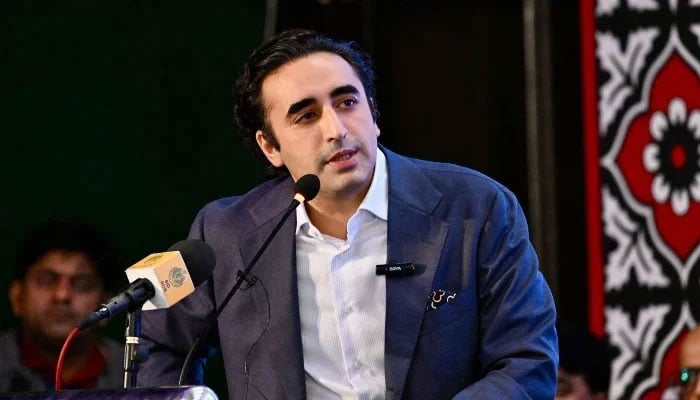Pakistan-India ceasefire hinged on dialogue, but ‘that isn't happening': Bilawal
"We've achieved a ceasefire but we haven't achieved peace," says former foreign minister
June 22, 2025

- Ex-FM Bilawal warns of 'very real threat' despite ceasefire.
- Accuses West of worsening Pakistan’s security situation.
- "Pakistan had seconds to decide If Indian missile was nuclear."
Former foreign minister and Pakistan Peoples Party (PPP) Chairman Bilawal Bhutto-Zardari has said that Islamabad agreed to a ceasefire with New Delhi last month on the understanding that the US will support a broader diplomatic process to address long-standing issues.
“At a time when the Pakistani Army believed that we had a military upper hand in the conflict, we agreed to a ceasefire because we believed there was a commitment from the United States that we’d go on to have a dialogue in a neutral location on all friction points,” he said.
“Now that isn’t happening. We don’t want the international community to get a false sense of ease as a result of the ceasefire. There’s still a very real threat,” said Bilawal in an interview with UK newspaper The Sunday Times, which he gave while leading a diplomatic mission paying visits to important world capitals to expose Indian aggression against Pakistan.
The nuclear-armed neighbouring arch-rivals had engaged in a serious military confrontation following India's unprovoked missile attacks on targets within Pakistani territory last month.
The Pakistan Army launched a retaliatory operation named Bunyan-um-Marsoos (Iron Wall) to counter the Indian aggression, which New Delhi branded as a response to the alleged Pakistani involvement in the attack on tourists in Indian Illegally Occupied Jammu and Kashmir's (IIOJK) Pahalgam in April.
Both countries suffered losses of life and property while the Pakistan Air Force (PAF) downed at least six Indian fighter jets, including the expensive French aircraft, Rafale, while successfully defending the country's territorial integrity.
The 87-hour conflict, which raised fears of a nuclear war between the two countries, finally ended in a ceasefire brokered by the United States.
The PPP chairman further warned that South Asia remains dangerously close to full-scale conflict, saying that during the recent escalation Islamabad had only “seconds” to determine whether a missile launched by New Delhi was nuclear-armed.
“On the final day of clashes, India deployed a dual-use cruise missile capable of carrying a nuclear warhead,” he said. “In that atmosphere, you’ve got only a few seconds to decide looking at an image: is this missile going to be used within the nuclear connotation or not? And in those split seconds, decisions are made.”
He reiterated that Islamabad had nothing to do with the April attack in Pahalgam. “To this day, they [India] haven’t provided names, identities, or proof of cross-border infiltration,” he said.
Despite the ceasefire, Bilawal warned that conditions for conflict remain dangerously fragile. “We’ve achieved a ceasefire but we haven’t achieved peace. That’s problematic because we have lowered the threshold for full-blown military conflict to dangerously low levels.”
The former foreign minister, who had served in the coalition government led by Prime Minister Shehbaz Sharif, also accused the West of abandoning regional responsibilities, particularly in Afghanistan.
“The rest of the world may have moved on from Afghanistan and exited Kabul, but we’re fighting terrorism from there,” he added.











